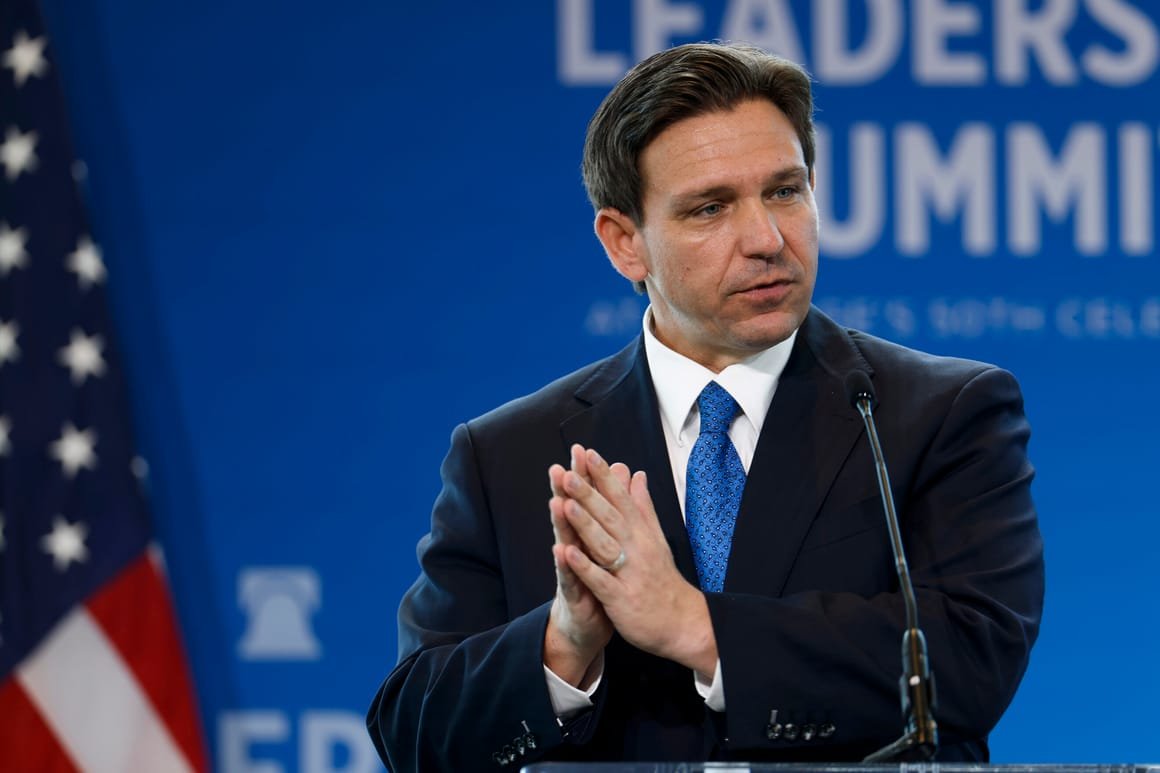Introduction: The Rise and Fall of Ron DeSantis Ron DeSantis, the 46th governor of Florida, gained significant buzz in American politics over the last few years. Initially, his tenure was marked by strong approval ratings and a loyal following, bolstered by his early actions during the COVID-19 pandemic. DeSantis’s decision to prioritize individual freedoms and
Introduction: The Rise and Fall of Ron DeSantis

Ron DeSantis, the 46th governor of Florida, gained significant buzz in American politics over the last few years. Initially, his tenure was marked by strong approval ratings and a loyal following, bolstered by his early actions during the COVID-19 pandemic. DeSantis’s decision to prioritize individual freedoms and maintain, positioned him as a notable contender in the Republican Party. His approach resonated with voters who appreciated his stance against federal government interventions, which paved the way for a bright political outlook
DeSantis’s ambitions grew as he began to eye higher office, particularly the presidency. His attempt to cultivate a national profile was met with enthusiasm by some, as he navigated the turbulent waters. Early supporters viewed him as a fresh face with the potential to lead the party and retain its core values. Nevertheless, as his political strategies progressed, a sense of discontent appeared among segments of his base. Some supporters began to question his motives of certain policies and controversies.
Furthermore, the influence of major donors and special interest groups began to surface as critical aspects of DeSantis’s political identity. His willingness to engage with these entities raised eyebrows, leading to discussions about the authenticity of his commitment to the people. This initiated a paradigm shift among his supporters. People are reevaluating their endorsement of his ambitions. As controversies mounted, it became apparent that the once-promising trajectory of Ron DeSantis faced significant challenges. This section serves as a prelude to an in-depth examination of his current standing his actions moving forward.
Donor Dependency: The Cost of Pleasing the Wrong Audience

Ron DeSantis’s political trajectory has increasingly illuminated a troubling dependency on donor funding. This highlights a significant shift in his approach to governance and constituency engagement. While political donations are a commonplace reality in campaign financing, DeSantis’s growing reliance on affluent contributors has raised concerns about his commitment to grassroots supporters. This dependency is not merely a financial issue but rather a fundamental shift in the political dynamics that has led to a series of compromises, ultimately eroding trust among his voter base.
Various instances demonstrate how DeSantis has navigated this delicate terrain, frequently opting to prioritize the expectations of wealthy backers over the voices of everyday constituents. This has manifested in controversial decisions and policy stances that appear to cater to elite interests rather than reflecting the will of the electorate. For instance, initiatives that could resonate with local communities have sometimes been overshadowed by measures that appeal more to high-profile donors. Such actions have fostered a perception that DeSantis is more aligned with special interests rather than the common citizen.
The critical balancing act between satisfying donor demands while maintaining the support of his electoral base has proven precarious. Although leveraging financial backing can yield short-term advantages, in DeSantis’s case, it has primarily resulted in a decline in his overall political capital and credibility. This has not only affected his standing among supporters but has also raised questions about his political integrity. For a leader, the ability to stay connected with constituents while navigating the complexities of campaign financing is essential. DeSantis’s current trajectory signals the perils of misjudging the balance between donor dependencies and voter expectations, ultimately impacting his political value and future prospects.
Ron Desantis And The $10 Million Controversy: A Question of Integrity and Leadership

In the political landscape, controversies often serve as focal points for public scrutiny, and the recent case of Ron DeSantis transferring $10 million into a non-profit startup epitomizes this phenomenon. This transfer has raised significant questions regarding his integrity and leadership. Critics argue that utilizing funds, ostensibly allocated for vulnerable populations, for a private initiative reflects a troubling disregard for ethical governance. This episode signifies not merely a financial decision but a moral one that may resonate profoundly with his constituents.
The reactions to this controversy have been polarized. Political allies have rallied to defend DeSantis, asserting that the funds are being funneled into initiatives aimed at aiding communities in need, thus painting the transfer in a more favorable light. However, opponents view the action as emblematic of a more significant ethical lapse, suggesting that it undermines trust in leadership. Their argument revolves around the belief that when public funds are implicated, especially those intended for support programs, integrity must prevail over personal or political interests.
This incident could markedly influence DeSantis’s public image. As a leader, the perception of capabilities is largely contingent upon perceived integrity and community commitment. By diverting substantial funds away from their intended purpose, doubts may emerge among constituents about his leadership efficacy and dedication to the populace he serves. Moments like these act as catalysts for public opinion, often sparking debates that may have lasting ramifications for political careers.
Ultimately, the $10 million controversy not only encapsulates the larger conversation about ethical governance but also represents a critical turning point for Ron DeSantis. As the implications unfurl, both his supporters and detractors will continue to grapple with the consequences of this decision, potentially redefining his legacy in the realm of contemporary politics.
Conclusion: The Future of DeSantis’s Political Aspirations

In examining the trajectory of Ron DeSantis’s political career, it becomes evident that his current standing has been significantly impacted by recent decisions and controversies. The negative perceptions surrounding DeSantis, fueled by concerns about his governance style and political maneuvers, have led many supporters to question his viability as a presidential candidate. To regain the trust of voters, he will need to undertake a multifaceted approach, demonstrating a commitment to addressing the very issues that have led to his decline in popularity.
Moving forward, the path to redemption appears steep. It may require DeSantis to pivot from some of the more controversial aspects of his policies and address the criticisms head-on. Engaging with constituents and showcasing a willingness to adapt could be key strategies in rebuilding his image. Furthermore, as the political landscape continues to evolve, it is critical for him to articulate a clear, coherent vision that resonates with a broad base of voters. This vision must encompass not only his past achievements but also a robust plan for the future.
Moreover, DeSantis’s political aspirations will also hinge on his ability to cultivate relationships within the Republican Party and beyond. The changing dynamics of voter sentiment highlight the importance of collaboration and unity within the party. If he is to emerge as a formidable candidate in future elections, he will need to reconcile with factional elements of the party and align his policies with the prevailing trends in American political dialogue.
As we reflect on the implications of DeSantis’s strategies, it raises critical questions about the direction of American political leadership and voter behavior in the coming years. Will his declining value remain a crucial consideration as voters weigh their options? The answers to these question will ultimately shape his political legacy.
 Internet Connectz
Internet Connectz 











Leave a Comment
Your email address will not be published. Required fields are marked with *